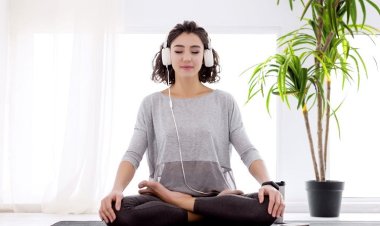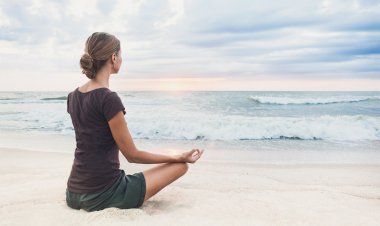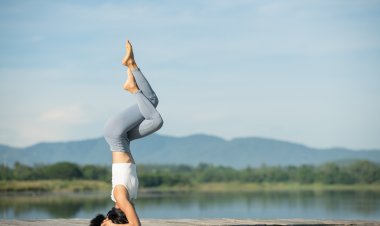Tips of Yoga Asanas for Beginners
Yoga Asanas for Beginners: In these uncertain times, the majority of us are experiencing tension in some capacity.
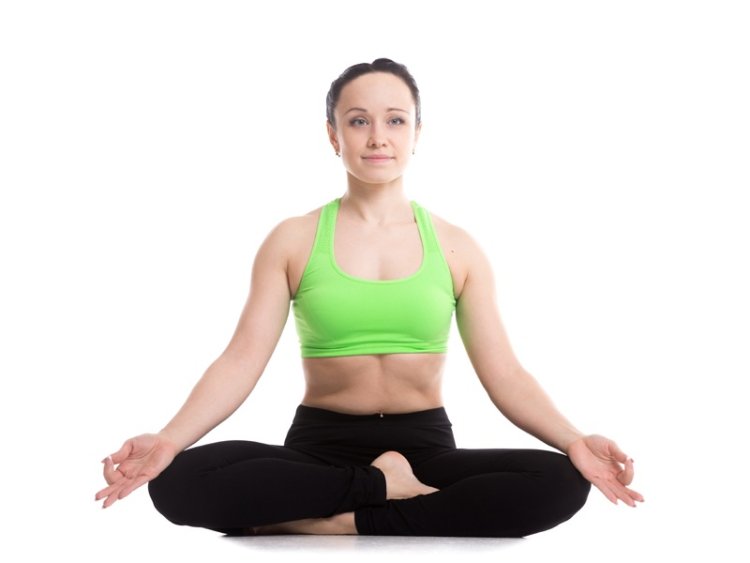
Yoga Asanas for Beginners: In these uncertain times, the majority of us are experiencing tension in some capacity. In addition to its physical benefits, yoga is one of the most effective stress management techniques; it induces a sense of serenity and mental health.
If you're a yoga beginner and don't want to attempt difficult poses without access to an instructor, here are some simple stress-relieving poses.
Tips of Yoga Asanas for Beginners
Sukhasana
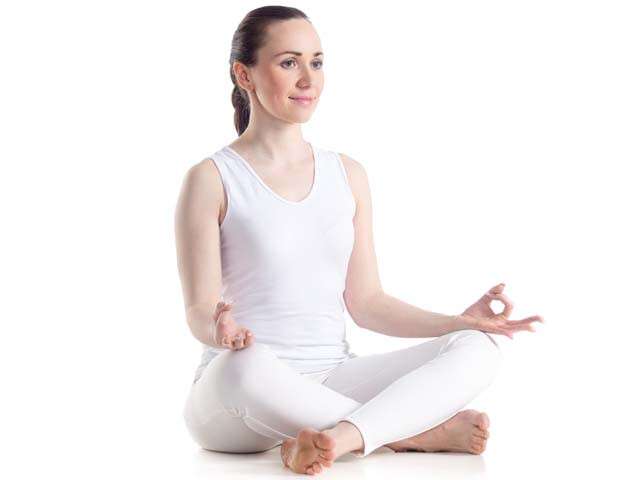
Sukhasana, also known as the Easy Pose, is a posture that you are likely already employing unconsciously. To practice mindfully can yield a variety of benefits, including calm and inner peace, relief from fatigue and mental tension, and improvement of overall posture and balance. Sit on the floor with your legs crossed at the shins. Each foot should be under the heel of the opposing leg. Maintain an elongated, upright spine in alignment with the neck and cranium. Keep the hands on the knees with the palms facing down or in chin mudra. Close your eyes, take deep breaths in and out, and hold for two to three minutes. Then, switch positions, placing the limb that was previously on top below. Repeat.
Tadasana
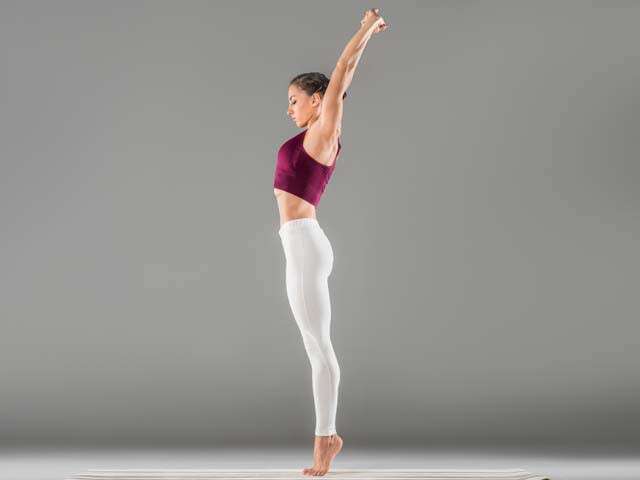
Tadasana, or Mountain Pose, is the foundation of all standing postures. It reduces anxiety by increasing respiration control and enhancing a sense of stability and grounding. Stand with your feet directly beneath your pelvis, your body erect and aligned, and your weight evenly distributed. Raise your arms above your head and interlace your fingertips with the palms facing up. As you do so, raise your body onto your heels and inhale deeply. You can move your shoulders back slightly to expand your torso. Hold this position for three to four counts with your inhalation. Exhale as you relinquish the pose by bringing your hands to the sides of your body and placing your soles back on the ground. Ten to twelve times.
Also read: Top 12 benefits of consuming cucumbers
Balasana
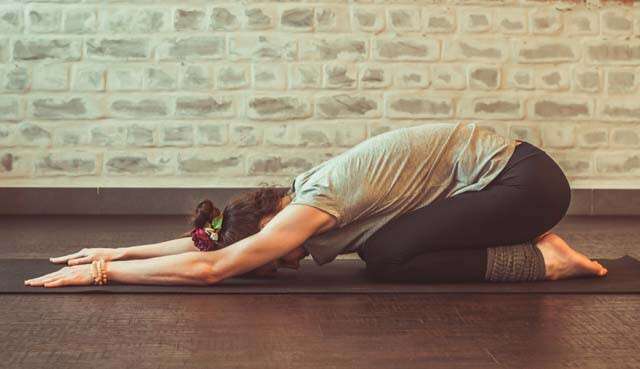
Balasana, also known as Child's Pose, has a direct effect on the nervous and lymphatic systems, relieving tension and fatigue and promoting mental tranquility. To perform balasana, kneel with your knees together and support your pelvis on your heels. Without elevating your hips, bend forward gently until your torso rests on your thighs and your brow meets the floor (you can use a pillow for the first few repetitions). You can maintain your arms by your sides with your palms facing upward, or you can extend them in front of you if you require additional support.
Setubandasana
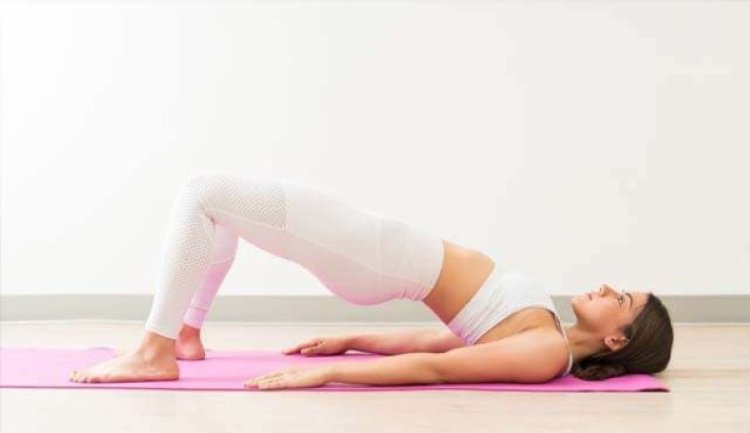
Setubandasana, also known as the bridge pose, can treat insomnia, anxiety, and migraines. It is also beneficial for controlling blood pressure and preventing backaches. While lying on your back, straighten your legs. The feet should be positioned directly beneath the knees and hip-width apart. The limbs must be at the sides of the body with the palms facing downward. Inhale and elevate your hips while keeping your feet and limbs firmly planted on the floor and your knees immobile. Utilize your buttock muscles to continue elevating your hips without straining your back. Hold for five counts, then exhale and gently lower the pelvis back to the starting position as you return to the starting position. Repeat daily a few times.
Buy this product on Amazon
Boldfit Yoga Mats for Women and Men NBR Material with Carrying Strap
Amazon Brand - Symactive 10mm Anti-Skid Lightweight Water/Dirt
Proof LDPE Yoga Mat with Carry Bag (Bottle Green)
Shavasana
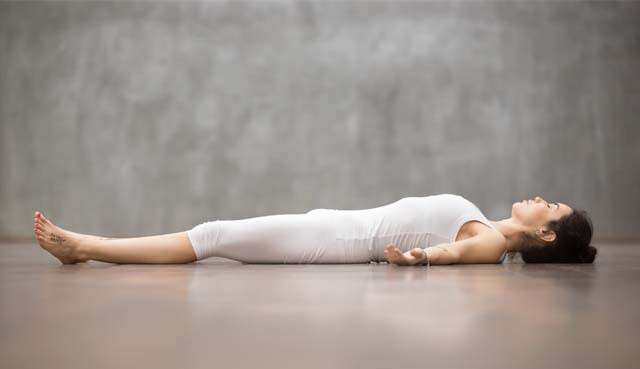
Shavasana or corpse pose, practiced at the conclusion of a yoga session, improves respiratory awareness, reduces stress and hypertension, improves concentration and mental health, and wards off depression. Lay on your back with your legs slightly apart and your arms approximately 6 inches away from your body with your palms facing upwards. Move your cranium until you find a restful and comfortable position. Ensure your comfort, as you should not move once you have assumed this position. Take steady breaths and relax your mind and body, but don't doze off! To exit Shavasana, move your fingertips and toes slowly, stretch your body with your legs pointing downwards, your arms pointing outwards, and your torso expanding, and move your head gingerly. Turn to the side of your choosing and assume a cross-legged sitting position.












